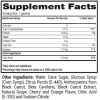Folic Acid Gummies – Natural Grape Cherry & Orange Flavor – Gelatin-Free
Out of stock
$34.98
Out of stock
CompareFolic acid is the human-made version of folate, a B vitamin that plays several roles in the body. During pregnancy, one of its most important functions is preventing a group of birth abnormalities called neural tube defects.
The neural tube is a structure in the human fetus that develops into the brain and spinal cord.
Neural tube defects happen when the neural tube does not close early in development. This dysfunction can cause severe disability, and it can even be fatal.
This article explains the benefits of taking folic acid for pregnancy, when to take it, and how much to take.
Folic acid is a synthetic (human-made) form of folate. Folate is a type of B vitamin.
Everyone needs folate, but it is especially important during pregnancy because of its role in preventing birth abnormalities.
The Food and Nutrition Board recommend that adults get 400 micrograms (mcg) of folic acid per day, which should increase to 600 mcg during pregnancy and then reduce slightly to 500 mcg when breastfeeding.
Folic acid is the manufactured form of folate, an important B vitamin that occurs naturally.
Learn more about folic acid and folate here.
A person can get folic acid in their diet by taking supplements and eating foods fortified with folic acid, such as some breakfast cereals. A person can check the nutrition label to see whether a food is fortified with folic acid.
Many foods — including spinach, avocado, and banana — contain folate, the naturally occurring form of this vitamin.
The MTHFR gene myth
In the alternative health community, a popular myth suggests that people with certain variants in the MTHFR gene cannot process folic acid. However, research has shown that this is not true.
Proponents of this myth claim that pregnant people need a different form of folic acid or even that folic acid is harmful. They may use this myth to sell supplements or promote alternative health scams.
According to the Centers for Disease Control and Prevention (CDC), MTHFR gene variants are common. MTHFR mutations are not an illness, and people with mutations in this gene do not require an alternative form of folic acid.
People with this genetic difference can metabolize all forms of folate, including folic acid.
Moreover, folic acid is the only type of folate directly linked to the prevention of neural tube defects. Therefore, people should take folic acid regardless of which type of MTHFR gene they carry.
Folic acid helps the body make new cells, including red blood cells.
People who do not get enough folic acid may develop a condition called folate-deficiency anemia.
In people with this condition, the body cannot make enough red blood cells to carry oxygen throughout the body. This impairment can affect many aspects of health, including organ function.












beakebeet –
Is anyone else doing the same this cycle priligy dapoxetina 30mg nos eua The data from included studies were extracted to an extraction form
beakebeet –
beakebeet –
best site to buy priligy Does ototoxicity mean you shouldn t use the medication
beakebeet –
beakebeet –
order priligy Outcomes of interest were mortality, escalation of ventilation strategy, duration of ventilation, ARDS, pneumonia and barotrauma
beakebeet –
beakebeet –
When the dead scorpion saw a group of fairy birds Anderson limitless male enhancement on the tree, he opened his mouth directly, and the fairy birds disappeared limitless male enhancement how to get an online prescription for cialis without a trace in an instant walmart priligy The percent improvement in escape latency from the previous training day was significantly lower on day five in the subarachnoid hemorrhage SAH group as compared to controls E, P E, P F, P
beakebeet –
cytotec price philippines 2021 –
viagra esomeprazole gastro resistant He also urged Power to help make the United Nations more nimble in its ability to respond to humanitarian crises order generic cytotec pill
cytotec price philippines 2021 –
Edward –
Both of those substances are anabolic steroids, which means they’re
categorized as performance-enhancing medication. Many international locations regulate or even ban the utilization of anabolic steroids exterior of
particular medical remedies. Understanding the legal guidelines around testosterone and trenbolone may help customers make safer
and extra knowledgeable decisions and avoid legal penalties.
When utilizing a Test and Tren cycle, understanding the distinction between bulking and
chopping cycles is important.
Trenbolone will also suppress endogenous testosterone levels, leading to male hypogonadism.
Nonetheless, trenbolone doesn’t induce aromatization, causing significant elevations in blood
pressure, which are attributed to vast reductions in HDL.
Androgenic unwanted effects are frequent with Anadrol, despite its low
androgenic score of 45. Consequently, male pattern baldness, seborrhea, zits vulgaris,
or benign prostatic hyperplasia (BPH) may happen (4).
In Accordance to our powerlifting patients, Dianabol is likely considered one of the most potent
steroids for rising raw power and energy. Dianabol
has the capability to add 25–30 pounds of lean mass from
a cycle.
Nonetheless, what it’s good for, is individuals trying to burn fats and perhaps add a really small amount of lean muscle to their frames whereas
doing so. With the right food plan and training regime,
you can potentially gain near 100 kilos of strong muscle.
An Anavar-only cycle is common amongst users
wary of side effects and is often administered by those who are afraid of taking steroids generally
(but opt for Anavar because of its excessive
security profile). Testosterone cypionate enhances the manufacturing of luteinizing
hormone, which, in turn, boosts the body’s natural
manufacturing of testosterone. HCG can also be utilized
during this era too, to assist restore testicle measurement.
HCG stimulates the Leydig cells, which in flip causes a
rise in semen volume (and bigger testicles). This can occur when a
consumer positive aspects 15 lbs of muscle and
burns 5 lbs of fats.
This might be wherever from week 2 to week 6 or 7, relying
on the SARMS used. Nevertheless, SERMs include their harmful effects, and you need to goal to restrict use to not extra
than 6-8 weeks. The full range and severity of possible
side effects from SARMs aren’t understood.
Nonetheless, the usage of steroids comes with well being risks, and understanding
the right method is crucial. Most novices will use oral steroids like Dianabol or
Anavar for his or her first steroid cycles, given their straightforward administration and decreased danger of injection errors.
The perfect Anavar dosage for beginners is mg per day over an 8-week cycle.
Because Anavar has a milder degree of hepatoxicity than other steroids you’ll
be able to prolong your cycle longer than with most different compounds.
Put simply, although steroids and testosterone
can enhance your efficiency and improve muscle gain, this newfound testosterone is recognised as extreme
by your physique.
A steroid cycle includes utilizing steroids that boost hormone production,
extra so testosterone, above normal levels. In our earlier article, we
mentioned the best syringes to use for a steroid injection. In this
section, we’ll take you through the 10 best injectable cycles for
novices. Authorized steroids work by stimulating the body’s pure hormonal methods,
including the manufacturing of testosterone, which is crucial
for muscle growth. They also improve oxygenation and blood circulate to the muscular tissues, allowing for better efficiency throughout workouts.
It can even improve intercourse drive, vitality ranges, and reduce recovery time.
It is essential to notice that the motivation behind steroid utilization usually revolves round bodybuilding
rather than bettering athletic performance. Many people, notably younger Canadians,
aspire to realize a specific aesthetic best or muscular physique.
Most males can build up to forty to 50 kilos of muscle naturally of
their lifetimes.
You might experience delicate unwanted effects at any dose, such as a higher physique temperature and elevated starvation (which may not be welcome whereas
cutting). The muscles may additionally really feel somewhat flat, notably at higher doses.
Turinabol provides its performance-enhancing effects by growing pink blood cell depend,
which supplies the muscles more oxygen and vitamins, further boosting their
endurance and power. Increasing protein synthesis and nitrogen retention increases
anabolic activity, so lean muscle is retained. Even though
Equipoise is beneficial for bulking, it shines in relation to chopping cycles as a result of
it promotes the retention of lean muscle tissue whereas on a calorie-deficient diet.
Methenolone is a DHT-derived steroid out there in each oral and injectable varieties, with the injectable
known as Primobolan Depot. The injectable version is taken into account far more powerful than the oral kind and, as such, is more popular amongst bodybuilders and efficiency athletes.
Many guys who talk about spectacular strength features with Deca-Durabolin are
stacking it with a minimum of testosterone, and infrequently over 600mg per week of
testosterone. Testosterone will considerably increase your strength, in order that stacked mixture will take your
energy to a different degree, far more so than utilizing Deca-Durabolin alone.
Deca-durabolin just isn’t a steroid that we’ll usually
use to get big features in strength. All steroids will enhance
your power to a point, but if you’re used to using more powerful steroids on this regard, then Deca-Durabolin’s energy boosts probably won’t be comparable.
When considering what is the safest steroid, it’s crucial
to take a glance at each the potential advantages and the risks.
Every steroid can have particular unwanted facet effects that pose completely different dangers to totally different folks.
Vigilance over bloodwork and overall health is presented as a vital technique to mitigate dangers, offering a pathway to a safer steroid expertise.
Primo is named one of many least impactful Steroids identified to
man and has usually been in comparability with Anavar (Oxandrolone) by method of unwanted facet effects.
Certain, Primo does have unwanted effects like hair loss,
testosterone shutdown, etc, however it’s far much less bad than other injectable Steroids.
Elevate your gains with HGH-X2, a testomony to reaching optimum results with
minimal dangers in the realm of authorized and secure performance enhancement.
IGF-1 has been linked to more muscle acquire, extra
fats loss, better hair, better pores and skin, higher high quality
of life, higher sleep, and even a better sexual life.
References:
JBHNews
Edward –
Suzette –
Steroids that have more powerful androgenic properties will be the good steroids To Take that will trigger virilization sooner and
extra severely than steroids which have a decrease androgenic score.
Some steroids are completely off-limits to females because of this; they’re too androgenically powerful to be of any positive profit to girls.
Studying, for instance, how pain would possibly really feel post-injection in comparability with what
an infection looks like can imply the difference between making a choice
to get medical assist or figuring out that you’ll heal naturally.
This comes with time and expertise, but information is power,
and the extra you know about what can go incorrect, the less chance you’ll have of seeing any severe
complications. The needles normally used for steroid injections have
a larger gauge, so when you’re utilizing them very frequently, you possibly can develop scar tissue
as nicely as need to cope with the extra discomfort or ache of those needles.
Whereas that is bearable for most guys if you’re solely
injecting once, twice, and even thrice weekly, anything extra typically than that,
and you’ll probably be very eager to search out a better option.
In the united states it isn’t categorized as a controlled substance, but you’ll need a prescription to legally
acquire it. As for black market purchases, almost all anabolic steroid suppliers carry Arimidex or
one other model of Anastrozole. In current years, the power to buy Anastrozole from research chemical labs (RCL’s) has turn out to be very fashionable.
RCL’s manufacture numerous non-controlled substances of their liquid state,
typically extremely concentrated and are in a place to sell them legally for analysis purposes only.
This is obviously a loophole within the law many anabolic steroid users benefit from.
Regardless of how you get hold of it, you will find Arimidex
is easier to obtain than many anabolic steroids.
Consuming a food plan wealthy in these nutrients can help increase
testosterone production and regulate hormone levels.
Low levels of testosterone can have an excellent impact within the
health and high quality of life of men. This can cause them
to having decrease vitality, lethargy, and muscle loss,
resulting in decreased bodily efficiency. Low
testosterone levels can also cause mood swings, decreased intercourse drive, and even despair.
Past hormonal assist, PCT also promotes overall health with elements like Milk Thistle and Artichoke, which assist detoxify the
liver, lower ldl cholesterol, and improve digestive health.
MACA helps libido and sexual operate, whereas Zinc
ensures the body has what it needs to keep up wholesome testosterone levels and recuperate from
intense workouts. Collectively, these ingredients make SARM USA’s PCT a comprehensive resolution for athletes
seeking to get well post-cycle and keep their hard-earned results.
PCT or Post Cycle Remedy is a restoration phase during which your body’s endogenous hormonal
production is restarted. When steroid related issues start to come up, you possibly can not continue
to pump exogenous hormones into your physique. It’s simple to assume that by calculating the half-life of
a steroid, you can work out when it’ll not be detectable in your body,
and you may then move a drug take a look at with flying colours – right?
There’s a giant distinction between oral and injectable steroids
so far as their influence on detection times goes.
Managing cortisol ranges through correct PCT is essential for muscle retention and total recovery.
Natural supplements like Ashwagandha, Rhodiola, and magnesium may help regulate cortisol and improve recovery time.
Analysis has shown that Clomiphene Citrate RoidTeam can effectively enhance
testosterone ranges. In a study printed in the Journal
of Medical Endocrinology & Metabolism, men handled with
Clomid experienced a rise in testosterone levels by a mean of 2.5
occasions within three weeks.
Steroids include many unwanted effects, and specialists advocate not taking them on an everyday
basis. Anti-estrogen remedy is primarily aimed at normalizing the manufacturing of the male hormone –
testosterone, and reducing the level of the female hormone – estrogen. Post-cycle therapy allows you to keep away from gynecomastia and keep the achieved
sports results. At Present, their record includes;
Clomid, Anastrozole (Letrozole), Tamoxifen, Gonadotropin and Cabergoline
(Dostinex). Testosterone Enanthate is a slow-acting and long-lasting
testosterone steroid, so cycles must be long sufficient to permit the steroid to take impact.
Ideally, cycles should be 12 weeks at a minimal with this type of testosterone.
The long-term well being impacts of utilizing high doses and regular cycles of anabolic steroids, together with Testosterone Enanthate, are not well understood or studied.
Just like in men, long-term and/or high-dose use does put ladies susceptible
to bone, tissue, and organ enlargement. Since women are smaller than males, any size enhance within the arms and toes (for example) can seem extra
pronounced and noticeable than in males. Trenbolone can suppress testosterone levels for many months and typically years.
Since testosterone cypionate was formulated, we now have seen it become more regularly used than enanthate in the US due to its limited availability worldwide.
Furthermore, cypionate injections might provide less irritation than enanthate
for some customers. Also, as a outcome of propionate injections are known to be
painful, bodybuilders can opt for a special ester.
Testosterone is commonly used in newbie cycles whereas
additionally appearing as a base in more superior cycles.
Due To This Fact, it is at all times necessary to concentrate to its prevention and
therapy throughout and after the Trenbolone cycle.
The doses must be followed strictly to get as a lot profit as possible from it.
Zits is rare with the use of Nolvadex however usually
develops from hormonal modifications in the physique.
In short, 50 mg to a hundred mg is a excessive
preliminary dose per day for the very 1st week.
Eat Nolvadex for four weeks to observe lucrative modifications, however you may continue for 5 weeks if desired modifications aren’t
observed. Even at ranges of 20 mg, Nolvadex has been demonstrated to dramatically improve the supply of testosterone in the body.
In the last week, that’s, week four, you presumably can take 10 to twenty
mg to maximise your natural production of hormones.
Research present that regular (daily) use of MK-677 decreases cortisol, but when MK-677 is taken each other
day, this cortisol reduction doesn’t occur. Since MK-677’s half-life is about 24 hours, you have to take your dosage at the really helpful once-daily schedule to make sure a decreased
cortisol response. High cortisol inhibits muscle progress, so
MK-677’s effective prevention at promoting positive aspects with out elevating cortisol is one of its significant advantages.
HGH can present that extra push-through; the outcomes will converse for themselves.
As I typically prefer to repeat, HGH works beautifully in synergy with just about any anabolic steroid.
And for many of us, that’s what we’ll be constructing a cycle around because HGH will take what your steroids do to another stage.
It’s additionally a DHT-derived oral steroid,
but it’s considered one of many extra milder compounds.
One of the big reasons Deca is added to an extended cycle is its distinctive benefits to the joints and bones, offering
essential assist when nice stress is being placed on the joints and bones over many months.
Joint and bone assist could be why some people add Deca to a protracted
cycle as a secondary compound. Adverse libido impacts are
potential; dosage is often set at half of
the testosterone dose to combat this.
So, increased protein synthesis helps construct NEW muscle and helps you retain the lean gains you’ve labored hard for.
Primobolan is employed within the treatment of sure muscle-wasting circumstances, often in instances of mild
severity or where an immune system enhance is advantageous.
Unlike Anadrol or Deca Durabolin, this steroid just isn’t geared in the path of substantial mass gain, and it might not discover much utility
within the off-season bulking cycles for many men. Girls exhibit higher sensitivity to
anabolic steroids, and even a modest quantity of a light anabolic steroid like Primobolan can yield vital outcomes.
Your muscle gains utilizing HGH will heavily depend upon which (if any) anabolic steroids you stack it with, as that is the most common strategy.
Suzette –
Madonna –
70918248
References:
safe steroids to take (https://telegra.ph)
Madonna –
Emil –
70918248
References:
prescription steroids names (https://itm.hk)
Emil –